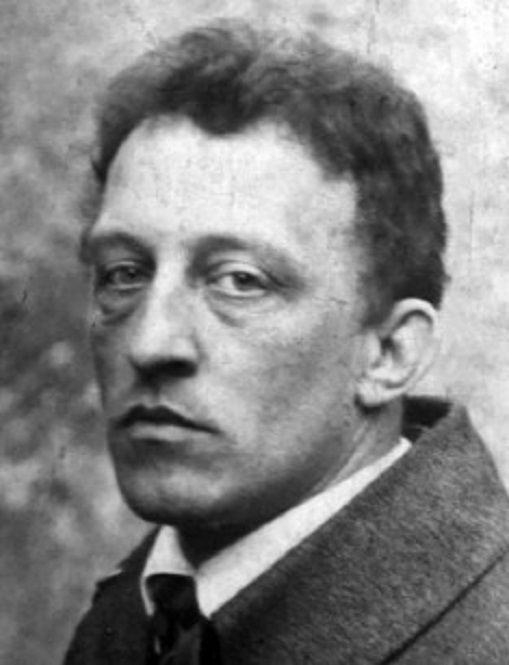Poem of the day. Aleksandr Blok - "To The Muse"
To The Muse
In your hidden memories
There are fatal tidings of doom...
A curse on sacred traditions,
A desecration of happiness;
And a power so alluring
That I am ready to repeat the rumour
That you have brought angels down from heaven,
Enticing them with your beauty...
And when you mock at faith,
That pale, greyish-purple halo
Which I once saw before
Suddenly begins to shine above you.
Are you evil or good? You are altogether from another world
They say strange things about you
For some you are the Muse and a miracle.
For me you are torment and hell.
I do not know why in the hour of dawn,
When no strength was left to me,
I did not perish, but caught sight of your face
And begged you to comfort me.
I wanted us to be enemies;
Why then did you make me a present
Of a flowery meadow and of the starry firmament --
The whole curse of your beauty?
Your fearful caresses were more treacherous
Than the northern night,
More intoxicating than the golden champagne of Aï,
Briefer than a gypsy woman's love...
And there was a fatal pleasure
In trampling on cherished and holy things;
And this passion, bitter as wormwood,
Was a frenzied delight for the heart!

Alexander Blok is a Russian poet. He is the main representative of Russian symbolism and the most influential Russian poet in the early 20th century. He was born on 28 November in 1880 in St. Petersburg in the family of a professor of law. After his parents separated in 1883, he left for Shakhtovo near Moscow, where he lived with his mother's parents. His grandfather is a former rector of St. Petersburg University and he grew up in an intellectual atmosphere, acquainting himself with the philosophy of Vladimir Solovyov, also a relative of his, and with the poetry of Fyodor Tutchev and Afanasii Fet. In 1903, Alexander Blok married Lyubov Mendeleeva, the daughter of the famous chemist Dmitry Mendeleev, who dedicated the poetic cycle "Styles to the Wonderful Queen" (1904). The book affirms it as the most influential figure of Russian symbolism, and its popularity continues to grow in the years to come. Blok has a strong influence on younger poets such as Anna Ahmatova, Marina Tsvetaeva and Boris Pasternak. In the last decade of his life, Alexander Blok focuses primarily on political issues, focusing on Russia's messianic predestination. After the Russian Revolution, he published the poem "The Twelve" (1936) describing the march of a band of twelve Bolsheviks sowing death and devastation in the revolutionary Petrograd in a heavy snowstorm. It provokes the displeasure of his intellectual followers who blame him for bad taste, as well as the Bolsheviks who do not like his mysticism. In the remaining years of his life, he lived in isolation and died in 1921, according to some of the famine caused by civil war.


@godflesh - This might seem strange, but I immediately sensed the 'Muse' to be Marxist Communism, and how it lured him to destruction.
These days we can find the same 'muse' in neo-Marxism and post-Modernism.
Spirituality and tradition go hand in hand.
Thank you for the poem and the background on the author. So many people suffered during that time.
Most socialist artists avoided symbolism back then. They preferred to shout out loud their revolutionary ideas in any media they could. That's why symbolists couldn't go forward with other comrades even though lots of them were very faithful communists... The conflict between art and communism comes from the way communism denies "individualism". That's why most of accomplished communist artists lived outside communist countries!
Thank you for the reply, something to research and think about.
Destinity is sometimes hard to artist